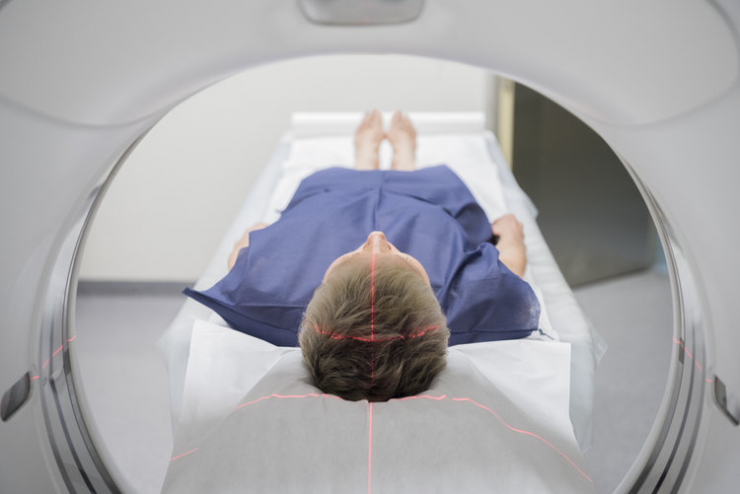“Our goal is to transform the way brain surgery is performed to advance better treatment options for patients for whom current therapies are deficient.”
So says Kimble Jenkins, CEO of MRI Interventions (OTCQB:MRIC), referring to the company’s ClearPoint surgical platform that provides real-time visualization via magnetic resonance image (MRI) guidance for a range of minimally invasive procedures in the brain.
In an interview with BioTuesdays.com, Mr. Jenkins notes that next generation platforms have been developed for cardiovascular, orthopedic and abdominal surgeries. “The ClearPoint system accomplishes for neurosurgery what fluoroscopy, arthroscopy and endoscopy achieve for these other fields of surgery, by allowing surgeons to see their work as they operate,” he adds.
Founded in 1998, Irvine, Calif.-based MRI Interventions has installed ClearPoint at 29 locations in the U.S. and two in Europe. The company has a growing direct sales, clinical support and marketing team that currently numbers 14. It also has a strong patent position in the field, with 85 issued patents and over 100 patent applications.
ClearPoint procedures are performed in standard MRI suites, so hospitals do not need specialized scanners. A draping system creates a sterile field around the open skull.
Mr. Jenkins explains that the ClearPoint system is being used to enable precise placement of drug delivery cannulas in the brain, laser ablation of tissue and placement of deep brain stimulation (DBS) electrodes to treat symptoms of Parkinson’s disease, for example.
“In the case of DBS without ClearPoint, patients often must be awake for their own brain surgery, which can be quite intimidating,” he points out. “We believe ClearPoint is much less intimidating, since the procedure can be performed with the patient asleep under general anesthesia.” In laser ablation procedures, ClearPoint enables surgeons to precisely place a laser probe at the desired location to destroy diseased or malignant tissue.
“We have a unique opportunity in drug delivery utilizing ClearPoint,” he adds, explaining that ClearPoint overcomes many of the challenges that have plagued prior techniques for drug delivery in the brain. For example, with systemic delivery of neurological drugs, the blood brain barrier can block almost the entire drug from ever reaching its target.
The ClearPoint system is currently involved as the delivery platform in five clinical trials: three for brain tumor and two for Parkinson’s disease.
ClearPoint is a win-win-win, Mr. Jenkins adds. Patients can be asleep for procedures they would otherwise undergo while awake, surgeons have direct, high-resolution intraprocedural visualization, and hospitals can treat more patients.
Mr. Jenkins pegs the population of patients with treatment-resistant neurological disorders – like Parkinson’s disease, dystonia, and certain forms of epilepsy and brain tumors – who could be candidates for a ClearPoint surgery at 2.2 million, placing the market opportunity at more than $16-billion in the U.S. ClearPoint’s market opportunity outside the U.S. is roughly equivalent in size to the U.S. potential, he adds.
The company achieved a milestone during the fourth quarter as it recorded product revenue of $1.1-million, which was the first time that its quarterly product revenue had exceeded $1-million.
In addition to ClearPoint, which is FDA cleared and CE Marked, MRI Interventions is developing the ClearTrace system to perform MRI-guided, minimally invasive cardiac ablation procedures.
The ClearTrace system, which is still in development and does not have regulatory approval, is an integrated platform of software, reusable hardware and disposable catheters designed to enable real-time, MRI-guided catheter-based interventions in the heart.
Last month, Siemens Healthcare and MRI Interventions announced an exclusive relationship related to ClearTrace. Under the new agreement, the two companies are working together to co-develop and commercialize a next generation software platform that will enable MRI-guided, minimally invasive catheter-based procedures targeting patients suffering from complex cardiac arrhythmias, such as atrial fibrillation.
“Our product platforms are designed to enable physicians to see the target site, guide the surgical instrument to the site, deliver the therapy, monitor for adverse events and complications, and confirm the desired results of the procedure, all under continuous, high resolution, intra-procedural magnetic resonance imaging,” Mr. Jenkins contends.







